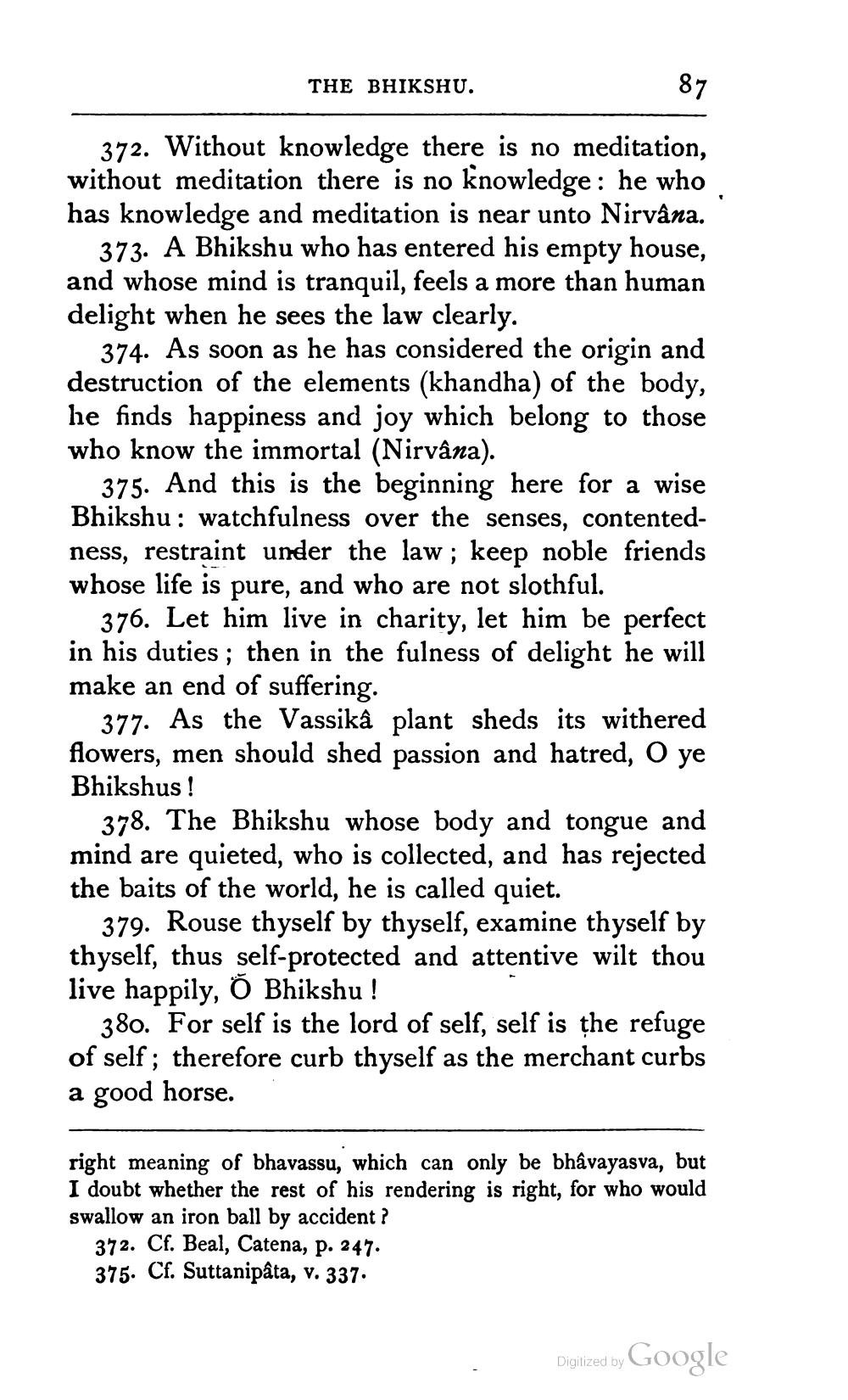________________
THE BHIKSHU.
87
372. Without knowledge there is no meditation, without meditation there is no knowledge : he who has knowledge and meditation is near unto Nirvana.
373. A Bhikshu who has entered his empty house, and whose mind is tranquil, feels a more than human delight when he sees the law clearly.
374. As soon as he has considered the origin and destruction of the elements (khandha) of the body, he finds happiness and joy which belong to those who know the immortal (Nirvana).
375. And this is the beginning here for a wise Bhikshu: watchfulness over the senses, contentedness, restraint under the law; keep noble friends whose life is pure, and who are not slothful.
376. Let him live in charity, let him be perfect in his duties; then in the fulness of delight he will make an end of suffering.
377. As the Vassikâ plant sheds its withered flowers, men should shed passion and hatred, O ye Bhikshus!
378. The Bhikshu whose body and tongue and mind are quieted, who is collected, and has rejected the baits of the world, he is called quiet.
379. Rouse thyself by thyself, examine thyself by thyself, thus self-protected and attentive wilt thou live happily, Ő Bhikshu !
380. For self is the lord of self, self is the refuge of self; therefore curb thyself as the merchant curbs a good horse.
right meaning of bhavassu, which can only be bhâvayasva, but I doubt whether the rest of his rendering is right, for who would swallow an iron ball by accident ?
372. Cf. Beal, Catena, p. 247. 375. Cf. Suttanipâta, V. 337.
Digitized by Google




